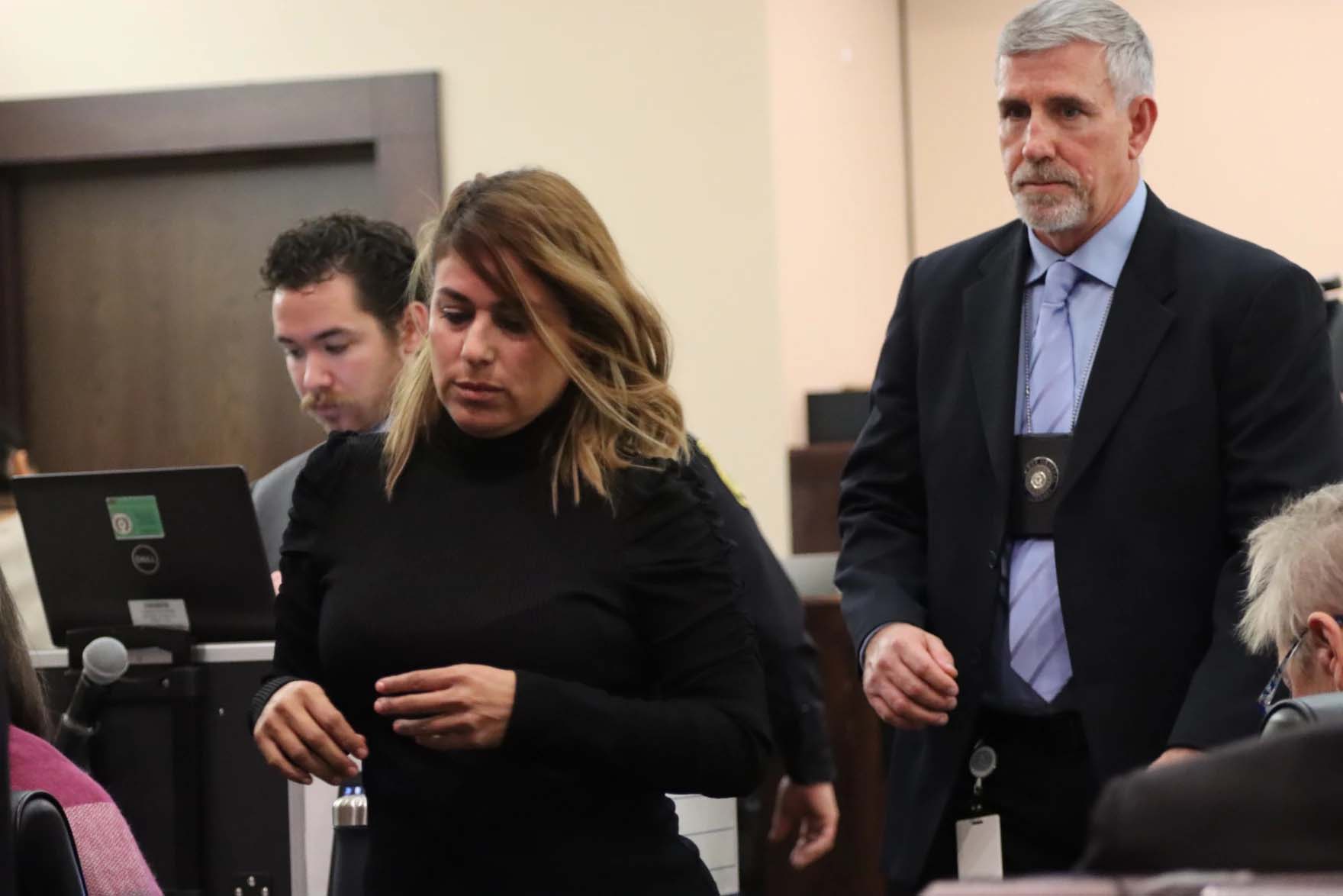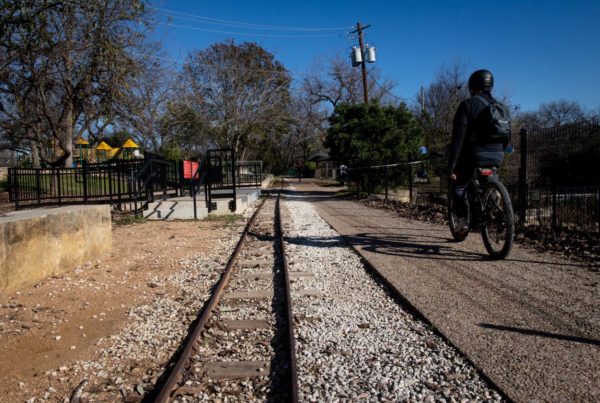From Texas Public Radio:
Irma Reyes was angry. She was also nervous — nearly to the point of sickness — on Monday. Reyes felt so bad she had to excuse herself from the back pew of the 226th Criminal District courtroom at the Cadena Reeves Justice Center, and she made her way to the bathroom.
“I thought I was having a panic attack,” she explained when she returned.
For more than six years, Reyes waited for justice for her daughter, now 21 and identified only as K.H. Police said she was sex trafficked in Bexar County when she was 16. Reyes said she isn’t getting justice for that crime.
Late last year, James Winters, an attorney with the Texas attorney general’s office, told her that they would offer the perpetrators plea deals that would both keep them out of jail and from having to register as sex offenders.
“It’s a total fail — a betrayal,” Reyes said. “I don’t even trust the system anymore. Are you there for your power? Or are you there to protect victims?”
That was why she and her husband made the trip from the Rio Grande Valley: to be heard. She had written Judge Velia Meza hoping the judge could do something about the prosecution’s plan.
The plea deal made public on Monday reduced the charge of the co-defendants from continuous trafficking of persons — a charge carrying a prison sentence of 25 years to life — down to aggravated promotion of prostitution and seven years deferred adjudication. Also, because the crime happened in 2017, none of the men in the case will be added to the sex offender registry.
“It’s crazy — unbelievable. And I asked [Winters], ‘are they going to be registered or offend sex offenders?’ It was ‘no,’ ” Reyes explained.
The deal was the result of a new prosecutor, a constant stream of turnover and exits from the Texas attorney general’s office and a court eager to resolve a years-old case that had already gone to court once already and ended — after seven days — in mistrial.
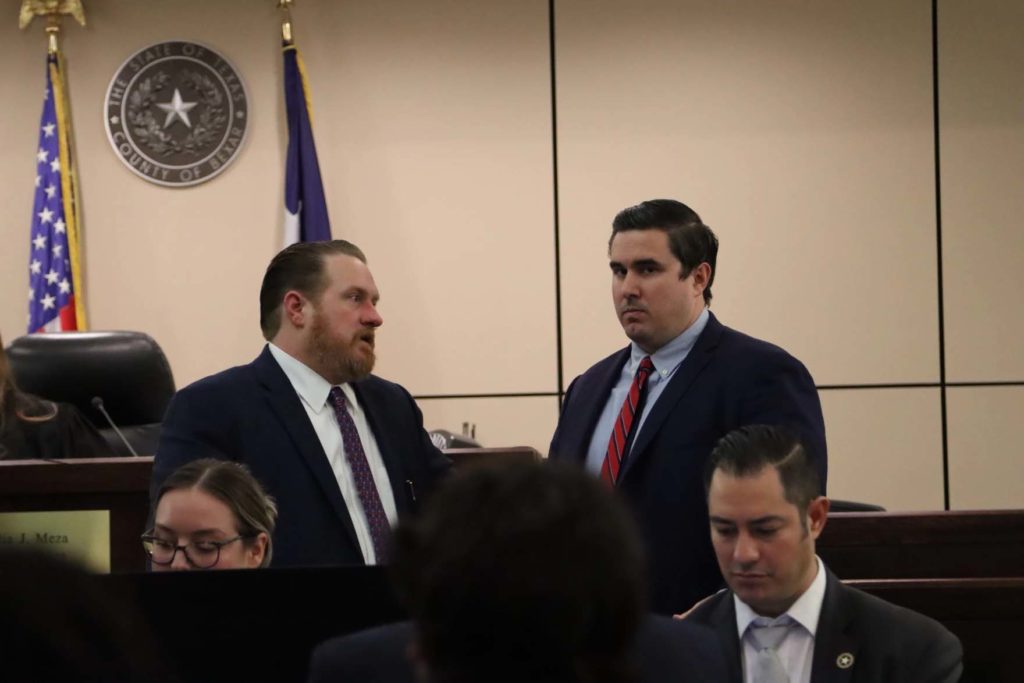
Sharkey’s attorney Jason Goss [left] converses with James Winters [right].
Paul Flahive / Texas Public Radio
Winters said in court on Monday that two of the three victims were unavailable — one faced with a warrant and another victim, identified only as K.H., who didn’t have her own phone and was unreachable.
Reyes disputed the description, saying her daughter — who testified at a previous trial — would do it again if asked. According to lawyers and judges TPR consulted, her testimony at the previous trial could have been used without her presence in this one.
The sentence recommendation from the attorney general’s office for the alleged traffickers was less time than the sweetheart deal offered last year to a man who pleaded guilty to solicitation of one of the minors in order to compel him to testify for the prosecution.
Rakim Sharkey trafficked three minor females — one for years until she was an adult woman — according to the 2019 indictment. He and Elijah Teel, prosecutors alleged, advertised the girls for sex on websites, including the now defunct backpage.com.
The girls were provided with phones and hotel rooms at La Quinta and Econolodge motels, where they would take money for sex, according to court records. Sharkey allegedly beat them when they spoke with other men and for not meeting monetary quotas.
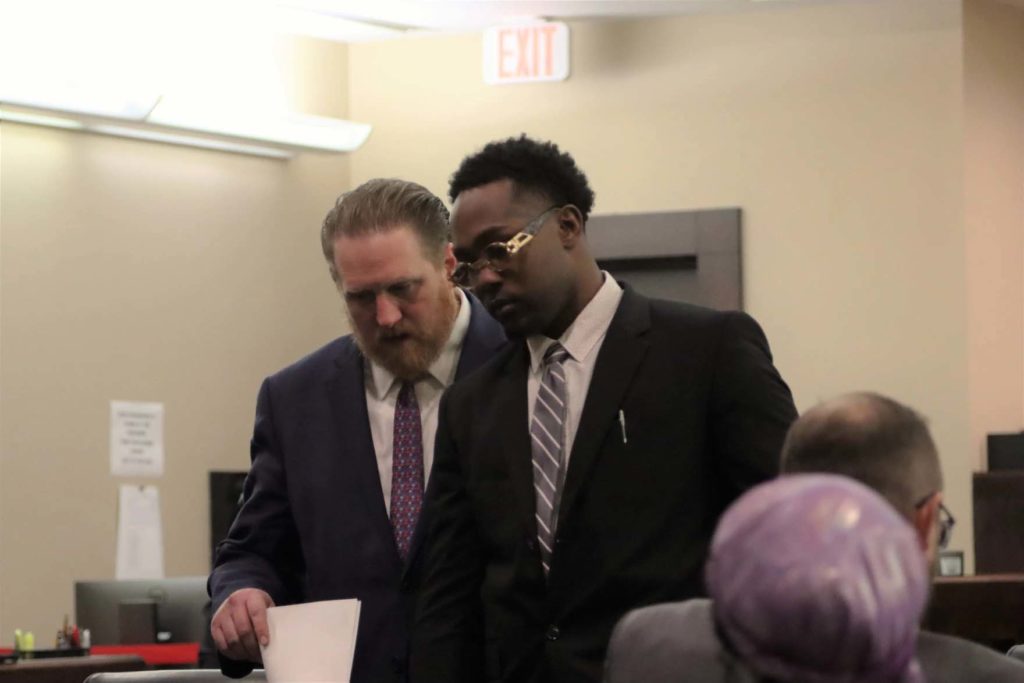
Rakim Sharkey [right].
Paul Flahive / Texas Public Radio
The decision to reduce the charge so dramatically spurred outrage from victims and surprise from a former prosecutor on the case.
“I do not believe a reduction to the level that we’re talking about is appropriate in this case,” said Kirsta Leeburg Melton, CEO of the Institute to Combat Trafficking and a former director of the Texas Attorney General’s Office of Human Trafficking.
Court records showed and testimony revealed that prosecutors had cooperative victims as witnesses, text messages, videos and other electronic evidence linking Sharkey to locations where the crimes took place. Prosecutors also had the testimony of a man who paid to have sex with one of the girls.
“The quality of this evidence in this case is excellent. [The San Antonio Police Department] did a tremendous job in gathering not only witness testimony, but many and varied sources of corroborating evidence,” Melton said. “With the type of evidence that was gathered in this case, it is an eminently triable case, and deserves to go in front of a jury.”
The case was given to the AGs office by the Bexar County District Attorney Joe Gonzales, who recused himself. He had been Sharkey’s defense attorney when he was elected DA. Since then, the case had been shelved because of COVID-19 pandemic.
Melton said the case was ready for trial at the end of 2019 when she left the office and was scheduled for early 2020. The pandemic saw Bexar County close its courts for most of the next 18 months.
Reyes said that in that time, Sharkey’s legal team offered up at least one plea deal, which would send him to prison, but she didn’t support it.
“I said ‘hell no.’ The damages are way too harsh. There’s no way. I’m still dealing with the aftermath, myself, and my daughter,” Reyes said.
Connie Spence, the primary prosecutor on the case at the time, said they would take the case to trial. In June of last year, they did.
“And they took it to trial because they believed in the strength of that case,” Melton said.
After seven days of testimony, the case was ruled a mistrial when several court members got sick with COVID-19.
Since then, Spence and several others left the AG’s office and, more significantly, the AGs office of Human Trafficking.
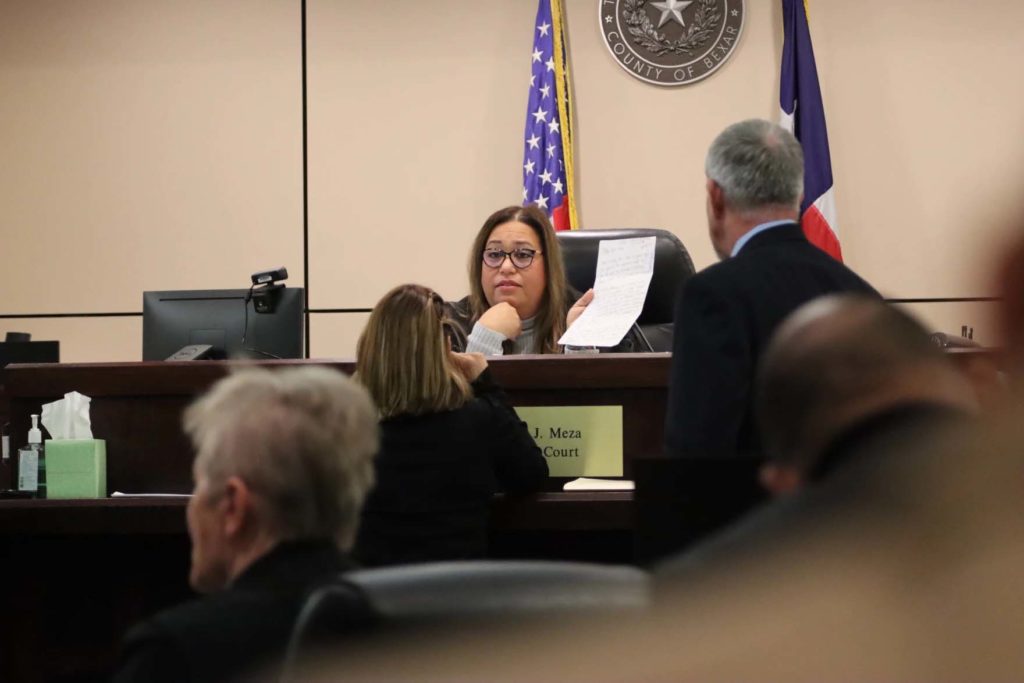
Judge Velia Meza discusses a letter Irma Reyes sent.
Paul Flahive / Texas Public Radio
Established at the mistrial
Reyes’ daughter, identified as K.H. in court records, met Sharkey in September 2017 after she and another girl had ran away from a drug treatment center in San Antonio. She was 16 years old at the time.
The teen had run away many times during the prior two years, and she had been placed in juvenile probation, treatment and other mental health facilities to address her needs, according to court records.
The two girls allegedly met Sharkey through Teel, who court records said gave the girls a place to stay in exchange for sex. Teel also pleaded to a significant reduction in charge, five years without registering as a sex offender.
Teel photographed the two and posted them online, advertising them for sex, saying in at least one ad that the girls were older than 18, according to court files.
Teel declined TPR’s request for comment.
The girls had sex in exchange for money for more than a week when Reyes’ daughter called her mother to check in about family. Before long, she told her that she didn’t want to be where she was anymore. She added that a man had punched her in the face for speaking to other men.
“He told me to go inside to the room, and he hit me,” the girl testified last June. Reyes tried to find out where her daughter was, but the girl hung up.
Reyes, who had already reported her daughter missing, said she tracked the phone number to a Backpage advertisement. It showed her daughter in her underwear on a bed.
She called SAPD, and officers found the girls.
Sentencing
Now, nearly seven years later, the men who allegedly violated Reyes’ daughter and other girls will walk free. Both Teel and Sharkey were sentenced for identical terms.
Meza warned both men that if they violate the terms of their probation, they come back to her, and she has the ability to sentence them for between 5-99 years.
“Keep that in mind,” Meza said to Sharkey. “I have the full range if anything goes wrong.
Since Reyes learned the AG’s office was moving forward with the deals, she has suffered from panic attacks. She said she had to take short-term disability.
“I get to where I can’t even drive,” Reyes explained. “I’ll be driving on the road crying, and I can’t even open my eyes.”
She said it isn’t clear when — if ever — these feelings will go away, especially now that she didn’t get the justice she believed her daughter deserves.
The judge gave the women the opportunity to confront the men on Monday. Reyes inhaled slowly and audibly into the microphone as the men faced her.
She pleaded with other victims to come forward against the men. She criticized the AGs office for not prosecuting the case. She said she didn’t have the heart to tell her daughter what happened that day.
And Reyes berated the four men seated before her— Sharkey, Teel and two other men who were pleaded to soliciting sex with her daughter at the same time.
“They’re nothing but trash that play with [girls’] emotions and psychologically abuse [and] physically abuse, and all because they want money.”


